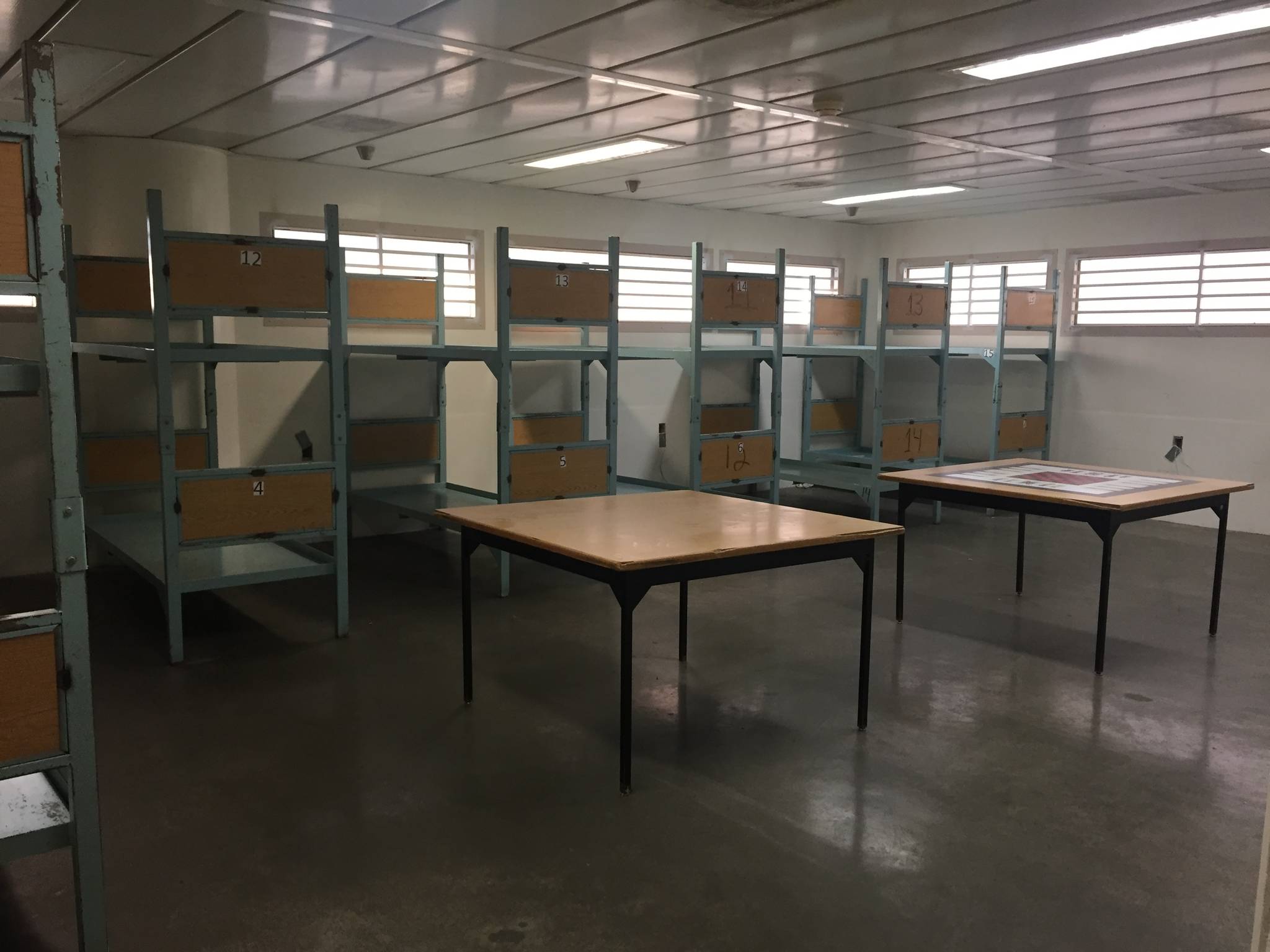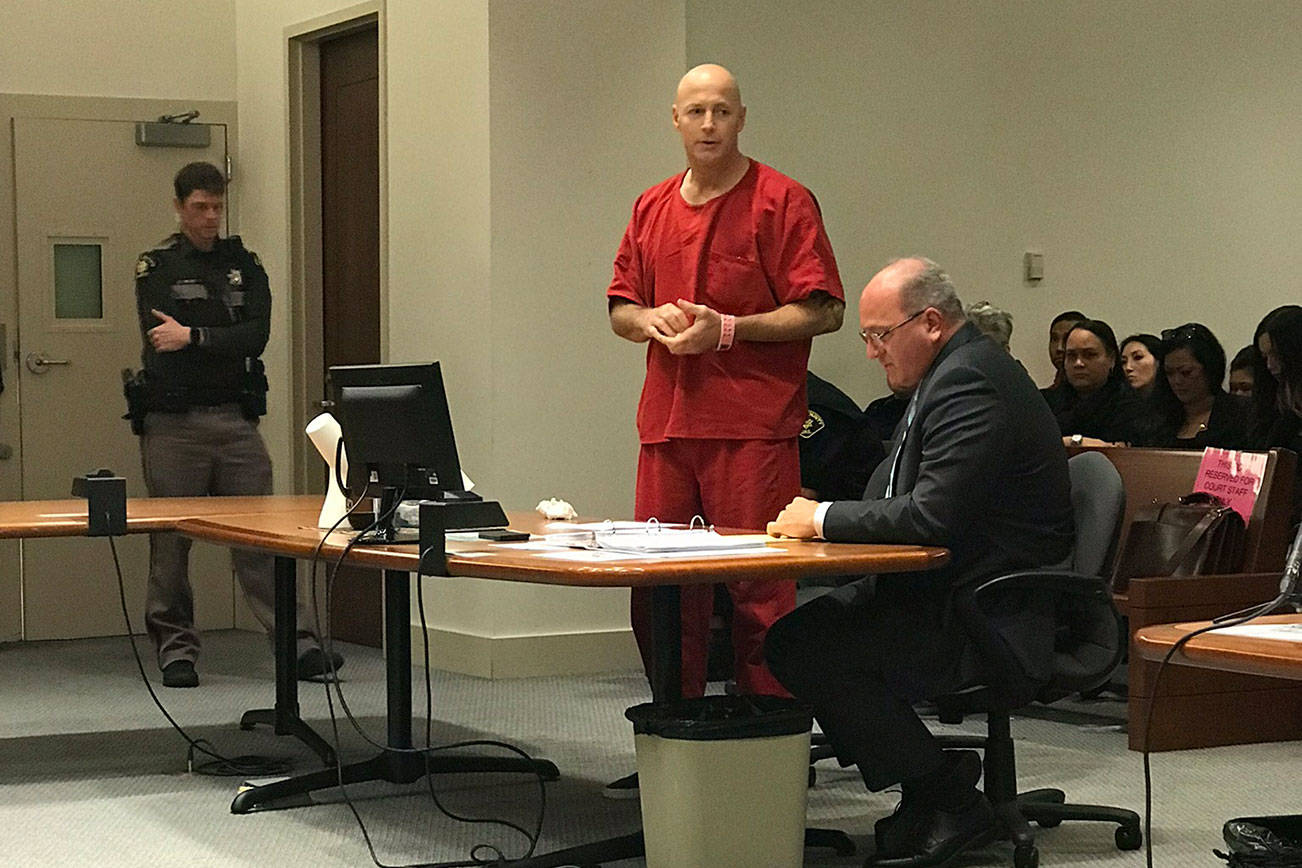In a sign of the increasing severity of the regional homelessness crisis, King County Executive Dow Constantine is pushing ahead with a plan to use a portion of the county jail in downtown Seattle as a homeless shelter.
The plan, which was announced on Oct. 11, is to use the currently vacant west wing of the jail at Fifth Avenue and Jefferson Street as a 24-hour shelter that would house between 125 and 150 people on any given night. Until 2012, the space, which consists of two floors of multi-bunk dormitories, showers, bathrooms, and office space with an elevator entrance from the street, was previously used to house both minimum security inmate workers and individuals on work release. Currently, the empty jail-space has been used for staff education and trainings, as well as storage.
“As I look around and I see the number of people who are continuing to be out on the streets … and then I see a vacant building right here in the middle of downtown Seattle, it seems to me that we really have a moral obligation to open that up and provide the opportunity for people to get in out of the weather,” Executive Constantine said during a press conference in his office on Oct. 11.
While many of the details of the plan have yet to be worked out—for example, a non-profit homeless services provider has yet to be selected to operate the shelter—County officials say that the shelter will be a low-barrier facility, meaning that sobriety likely won’t be a requirement for people to stay there. Whether it will be co-ed or gender specific or allow pets, has yet to be identified, however. The shelter will also be “enhanced,” meaning that, in addition to allowing people to come and go at all times of day (in contrast, many local shelters require that individuals leave the premises early in the morning) it will feature staff who can connect homeless individuals to affordable housing and other services.
Mark Ellerbrook, director of the housing and community development division of the county’s Department of Community and Human Services, told reporters inside the jail-space that the area is completely cordoned off from the rest of the jail, and will have no impact on its operations.
He added that it will cost roughly $2 million to renovate the space and another $2 million to operate annually—funding which is available in Constantine’s 2019-2020 budget proposal which the King County Council is currently vetting. The goal is to have it up and running by winter.
Constantine also said that he is well aware of potential criticism of the project due to the optics of housing homeless individuals in an institutionalized setting previously used for incarceration. “Clearly, this is not ideal. What this is is the solution we have available now,” he said.
“I’m keenly aware of the concern about the optics of offering people shelter in a place that was once a jail but I would reframe it this way: we are taking building that was once about incarceration and we are converting it into shelter. It is an expression of our values as a community that we want not to incarcerate people but to help lift them up and protect them and help them get their lives back on track,” he added. “This is the one big building in the area that is, essentially, vacant. So the optics of people taking shelter in a former minimum security jail are, I would suggest, not as bad as the optics of hundreds of people having to sleep out in the rain and snow.”
In the county’s press release about the project, they touted supportive quotes from homeless advocates like Alison Eisinger, the executive director of the Seattle/King County Coalition on Homelessness and Katrina Johnson, project manager of the Law Enforcement Assisted Diversion (LEAD) program at the Public Defenders Association.
“We have for years urged local governments to make good use of vacant public buildings to house and shelter our neighbors. It is good to see our County act to do more. I am hopeful that through sincere partnership with community, this may save lives, decriminalize a whole building, and elevate solutions we all can agree on,” Eisinger said in the release.
Timothy Harris, founding director of the Real Change Homeless Empowerment Project, had previously told The Seattle Times that he thought the plan was problematic. However, he penned an editorial on Oct. 10 walking back his position. “The availability of shelter space at King County Correctional Facility is a golden opportunity for a long-term win-win, both for homeless people who suffer from addiction and communities that seek long-term solutions to unsheltered homelessness,” he wrote.
Constantine, who toured the facility earlier in the week, added that officials will be working with the service provider on how to renovate the facility to make it less foreboding, such as adding more natural light and removing bars from the windows. “Some things need to be softened around the edges,” he said.
This post has been updated to reflect the accurate location of the King County jail.








